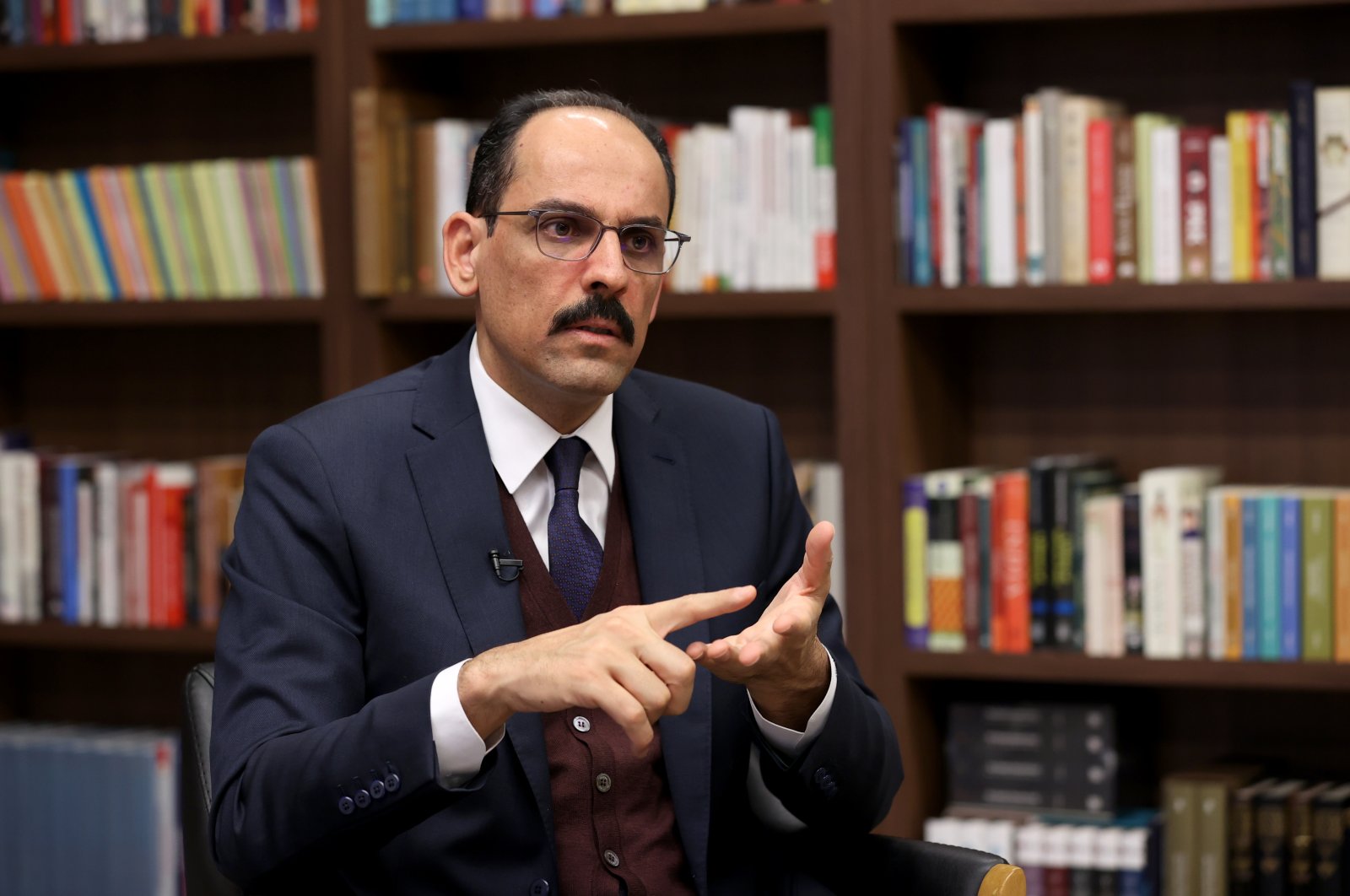Turkey-US negotiations can solve S-400 crisis: Presidential Spox

Turkey and the U.S. have the capacity to solve the S-400 crisis through negotiations, Presidential Spokesperson Ibrahim Kalın said Monday, adding that there is no need for maximalist approaches that would harm the process instead of solving the problem.
“Turkey says, as a part of NATO alliance, we need to work together in order to minimize possible security risks. It would not be right to directly reject this approach without even considering it,” Kalın said.
As far as the so-called “Crete Formula” on the issue is concerned, Kalın said there is no such formula on Turkey’s agenda and underlined that Ankara’s S-400 policy has evolved over the years, not in a day.
Ties between NATO allies Turkey and the U.S. were badly strained in 2019 over Ankara’s acquisition of the advanced S-400 Russian air defense system, prompting Washington to remove Turkey from its F-35 Lightning II jet program.
The U.S. argued that the system is incompatible with NATO systems and could be used by Russia to covertly obtain classified details on the Lockheed Martin F-35 jets. Turkey, however, insists that the S-400 would not be integrated into NATO systems and would not pose a threat to the alliance.
The Russian-made S-300 system, for instance, has been sold to 20 countries, including NATO member countries such as Bulgaria, Greece and Slovakia.
The S-300 system, completed in 1978, is designed to defend against short- and medium-range air attacks and is considered one of the world’s most powerful air defense systems.
In 1996, Greece signed a deal with Russia for the purchase of S-300s for deployment on Greek Cypriot soil.
These missiles could not be deployed in southern Cyprus as a result of Turkish pressure, but in 1998, they were deployed in Crete, whose strategic importance has been rising steadily.
Greece also signed new agreements with Russia in 1999 and 2004 to purchase TOR-M1 and OSA-AKM (SA-8B) medium – and low–altitude air defense systems.
These Russian-made air defense systems are currently an integrated part of Greece’s air defense system and have also been deployed by the Greek Cypriot administration.
“We believe that a mechanism can be established to eliminate the security concerns of the U.S. regarding the S-400 systems. We have made an offer and we reiterate this offer. We believe we can build on this offer, this is possible,” the spokesperson expressed.
He explained that the offer was an examination offer of S-400 missile systems to show that it would not cause a risk to NATO security systems.
Ankara has repeatedly stressed it was the U.S.’ refusal to sell its Patriot missile systems that led it to seek other sellers, adding that Russia had offered a better deal, including technology transfers. Turkey even proposed setting up a commission with the U.S. to clarify any technical issues.
When it comes to Turkey-U.S. ties in general, Kalın underlined that there is a long history behind the bilateral relationship, which has experienced both ups and downs.
“However, one thing remained stable, which is the fact that Turkey’s strategic importance in the region has never diminished,” he continued and added that it is likely the Biden administration will keep working closely with Turkey.
Pointing at the other areas of diplomatic dispute apart from the S-400 crisis, such as the presence of the Gülenist Terror Group (FETÖ) in the U.S. and the country’s support to the YPG terrorists, Kalın said these issues pose a threat to Turkey and Ankara expects Washington to change its stance on the subjects.
Kalın also denied the rumors that Turkey has signaled to the U.S. that if it drops its support of the YPG, Ankara will also change its stance on S-400 missiles. “We don’t have such bargain with the U.S.,” the spokesperson emphasized.
“Regarding the YPG, the U.S.’ insistence on its wrong policy not only fails to solve the Syrian crisis but also damages our bilateral ties to a further level. Biden administration should reconsider this policy seriously,” Kalın said.
The U.S. has primarily partnered with the YPG in northeastern Syria in the anti-Daesh fight. On the other hand, Turkey strongly opposed the terrorist group’s presence in northern Syria, which has been a major sticking point in strained Turkey-U.S. relations. Ankara has long objected to the U.S.’ support for the YPG, a group that poses a threat to Turkey and terrorizes local people, destroying their homes and forcing them to flee.
Under the pretext of fighting Daesh, the U.S. has provided military training and given truckloads of military support to the YPG, despite its NATO ally’s security concerns. While underlining that a country cannot support one terrorist group to fight another, Turkey conducted its own counterterrorism operations, over the course of which it has managed to remove a significant number of terrorists from the region.
